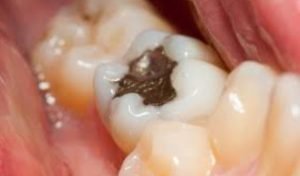DO I HAVE A CAVITY QUIZ
Are you interested in knowing more about the question “do I have a cavity quiz”? If so, then you are on the right page. Feel relaxed and make sure you read the article to the end.

DO I HAVE A CAVITY QUIZ
Tooth decay, often referred to as cavities, is the most common chronic disease of children and adolescents. In fact, it’s four times more common than asthma in adolescent-age children.1 Also, many adults have tooth decay. Research has shown 92% of adults 20 to 64 have had cavities in their permanent teeth and 26% of adults 20 to 64 have untreated decay.
Maintaining good oral hygiene is essential and just brushing your teeth isn’t enough. Take some quiz to find out your risk of cavities!
ARE YOU AT RISK FOR CAVITIES?
Take cavity quiz question to determine if you are at risk for dental cavities. Cavities can form in your teeth for a variety of reasons and they best way to stay cavity free is to brush and floss your teeth everyday and visit your dentist 2 times per year for a profession dental cleaning and check-up.
If you have had a recent filling or dental crown to fix tooth decay you are at higher risk for more tooth decay to develop. Tooth decay frequently develops next to previous decay.
Cavity Signs and Symptoms
The symptoms of a cavity will depend on how large it is and where it is in your mouth. You may not have any symptoms at first. They’ll get worse as the cavity gets larger, including:
- Pain or a toothache that happens without warning
- Sensitive teeth
- Pain when you eat or drink sweet, hot, or cold things
- Holes or pits in your teeth
- Black, white, or brown tooth stains
- Pain when you bite down
Cavity Causes and Risk Factors
When foods with carbohydrates like bread, cereal, milk, soda, fruit, cake, or candy stay on your teeth, they cause decay. The bacteria in your mouth turn them into acids. The bacteria, acid, food debris, and your saliva combine to form plaque, which clings to your teeth. The acids in plaque dissolve the enamel, creating holes called cavities.
READ ALSO:DO I QUALIFY FOR A BREAST REDUCTION
DO I HAVE A CAVITY QUIZ
Many people think that only children get cavities, but changes in your mouth as you age make them an adult problem, too. As you get older, your gums pull away from your teeth. They can also pull away because of gum disease. This exposes the roots of your teeth to plaque. And if you eat a lot of sugary or high-carb foods, you’re more likely to get cavities.
Older adults sometimes get decay around the edges of fillings. Seniors often have a lot of dental work because they didn’t get fluoride or good oral care when they were kids. Over the years, these fillings can weaken teeth and break. Bacteria gather in the gaps and cause decay.
If you have teeth, you’re at risk for cavities. Some things can raise your chances:
- Clingy foods and drinks. Foods like sugar, soda, milk, ice cream, cereal, and chips are more likely to stay put and cause decay.
- Poor brushing. When you don’t brush your teeth after eating and drinking, plaque and decay have a chance to form.
- A lack of fluoride.This mineral, found in toothpaste, mouthwash, and some tap water, helps to prevent cavities and can reverse early tooth damage.
- Dry mouth. Saliva washes away food and plaque from your teeth and helps prevent tooth decay.
- Eating disorders.When you throw up over and over, stomach acid can dissolve teeth enamel, which may lead to cavities.
- Acid reflux disease.This condition forces stomach acid into your mouth and wears down your teeth, causing cavities.Be sure to have regular checkups and cleanings, since that’s when your dentist finds cavities. They’ll probe your teeth, looking for soft spots, or use X-rays to look between your teeth.
Cavity Diagnosis
Be sure to have regular checkups and cleanings, since that’s when your dentist finds cavities. They’ll probe your teeth, looking for soft spots, or use X-rays to look between your teeth.
Cavity Treatment
You may be in a lot of pain while waiting for your dental appointment. Ask your doctor if it’s OK to take over-the-counter pain medicine. You can also:
Brush your teeth with warm water
Use toothpaste made for sensitive teeth
Avoid foods and drinks that are hot, cold, or sweet
Treatment depends on how bad the cavity is. Most often, the dentist takes out the decayed portion of your tooth with a drill. There are a few options to repair the tooth:
Filling. Your dentist will fill in the hole with a filling made of silver alloy, gold, porcelain, or a composite resin. These materials are safe. Some people have raised concerns about mercury-based fillings called amalgams, but the American Dental Association, the FDA, and other public health agencies say they’re also safe. Allergies to fillings are rare.
Crowns. Dentists use crowns when a tooth is so badly decayed that there’s not much healthy enamel left. They’ll take out and repair the damaged part, then fit a crown made from gold, porcelain, or porcelain fused to metal over the rest of the tooth.
Root canal. You might need a root canal if the root or pulp of your tooth is dead or injured in a way that can’t be repaired. The dentist removes the nerve, blood vessels, and tissue along with the decayed portions of the tooth. They fill in the roots with a sealing material. You may need a crown over the filled tooth.


